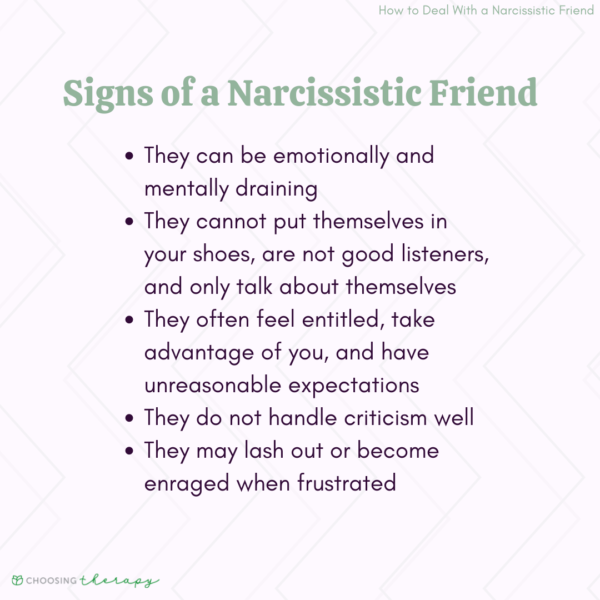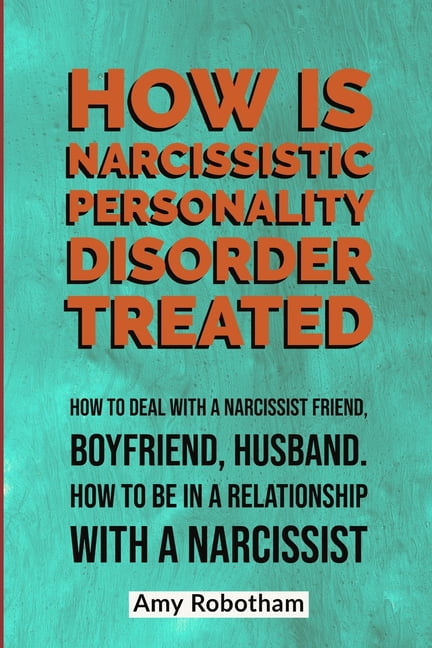How Do You Deal With A Narcissistic Friend

Friendships can be complex, especially when dealing with someone exhibiting narcissistic traits. Understanding how to navigate these relationships is crucial for your own well-being and mental health.
This article provides actionable strategies for managing a friendship with someone displaying narcissistic behaviors, focusing on setting boundaries, prioritizing self-care, and making informed decisions about the relationship's future.
Recognizing Narcissistic Traits
First, understand the core characteristics. These include an inflated sense of self-importance, a constant need for admiration, and a lack of empathy, according to the DSM-5 diagnostic criteria for Narcissistic Personality Disorder.
Not everyone with some of these traits has NPD, however, if these behaviors consistently negatively impact your interactions, it's vital to address it. Pay attention to patterns, not isolated incidents.
Setting and Maintaining Boundaries
Establishing clear boundaries is paramount. What are you willing to tolerate?
Communicate your limits assertively and directly. For example, "I need you to listen without interrupting when I'm talking about my problems."
Consistency is key. Enforce boundaries even when it's difficult.
Prioritizing Self-Care
Dealing with a narcissistic friend can be emotionally draining. Make self-care a non-negotiable aspect of your life.
Engage in activities that recharge you, such as exercise, hobbies, or spending time with supportive individuals. Schedule dedicated "me time" and stick to it.
If the friendship constantly leaves you feeling depleted, it might be time to re-evaluate the relationship.
Managing Communication
Adjusting how you communicate can minimize conflict. Keep interactions brief and focused.
Avoid sharing overly personal information that could be used against you later. Instead, steer conversations towards neutral topics.
Practice assertive communication techniques like using "I" statements ("I feel hurt when...") instead of accusatory language ("You always...").
Seeking External Support
Don't navigate this challenge alone. Talk to a trusted friend, family member, or therapist about your experiences.
According to the National Alliance on Mental Illness (NAMI), support groups can provide a safe space to share your experiences and learn from others.
A therapist can offer strategies for managing the relationship and coping with its emotional impact.
When to Consider Distance or Termination
Sometimes, despite your best efforts, the friendship remains detrimental to your well-being. It's okay to create distance or end the friendship altogether.
Evaluate whether the benefits of the friendship outweigh the emotional costs. If the relationship is consistently negative, distancing yourself is a valid option.
Communicate your decision clearly and concisely, if necessary, but prioritize your safety and well-being above all else.
Ongoing Developments
The Narcissistic Personality Disorder Awareness Project (NPDAP) offers resources and support for individuals dealing with narcissism in their lives.
Continued research into NPD and its impact on relationships is ongoing. Stay informed and adaptable.
Remember, prioritizing your mental and emotional health is paramount when navigating challenging friendships. You deserve to be in relationships that uplift and support you, not diminish you.


















